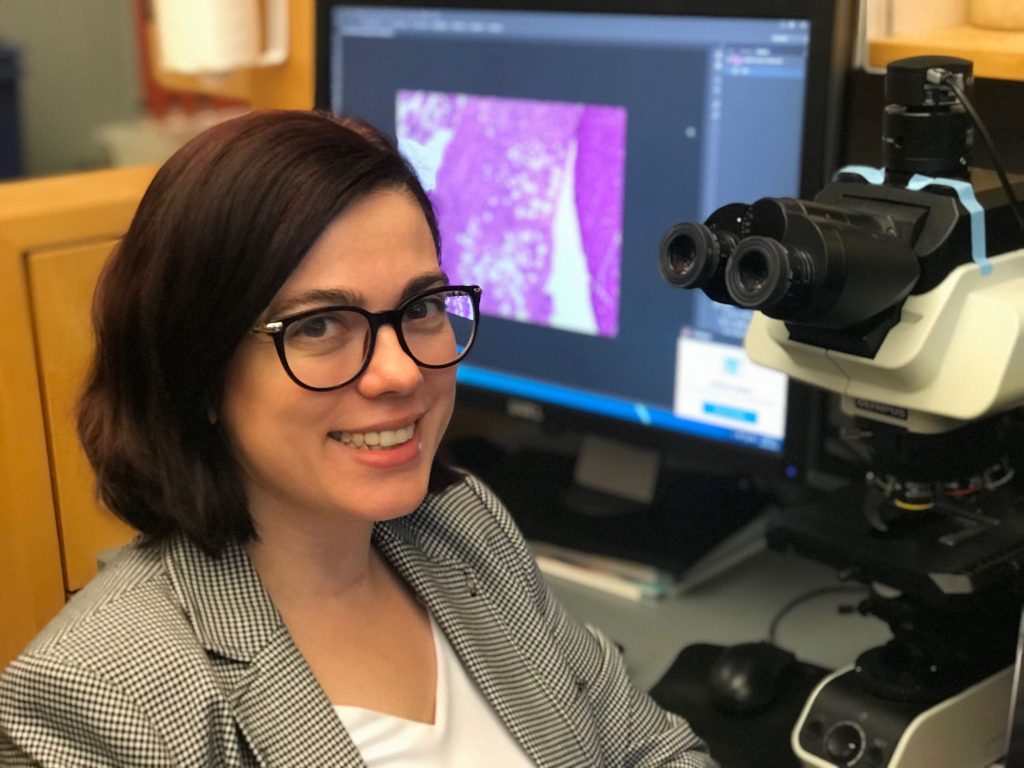
A therapeutic strategy that targets key tumor proteins shows promise for treating the most common subtype of ovarian cancer, according to a recent study led by OCRA grantee Duygu Ozmadenci, PhD, of the University of California, San Diego Moores Cancer Center.
High-grade serous ovarian carcinoma (HGSOC) is the most common subtype of ovarian cancer, with approximately 75% of epithelial ovarian cancers categorized as such. This ovarian cancer subtype is difficult to treat, even defying the newer class of drugs known as immunotherapy agents that have been effective against other cancers. Immunotherapy drugs are designed to boost the body’s immune response so that the cancer-fighting cells can more effectively attack the tumor cells, but HGSOC tumors typically defy this type of treatment.
Dr. Ozmadenci and her colleagues have revealed that key proteins enable HGSOC cancer cells to evade detection by the body’s immune system, which has helped the tumors remain largely resistant to current immunotherapy treatments. The researchers have identified the signaling protein known as FAK (focal adhesion kinase) and the immune checkpoint protein CD155 as markers of immune-evasive HGSOC tumors. FAK acts as a signaling hub that can protect tumor cells from stress, according to the study’s authors. In the case of HGSOC tumors, Dr. Ozmadenci and her team found that FAK regulates CD155 and is associated with increased levels of this immune checkpoint protein in the tumor environment. CD155 shields the tumor against immune attack by binding to the checkpoint receptor TIGIT, an action that keeps the cancer-fighting cells from attacking the HGSOC tumor cells.
In tandem with the researchers’ findings that FAK, CD155 and TIGIT all likely contribute to how HGSOC tumors are able to evade the body’s immune response, the team found that an anti-FAK drug reduced the levels of CD155 and other checkpoint proteins in a preclinical model of aggressive ovarian cancer. They also discovered that when the anti-FAK drug was combined with a TIGIT-blocking immunotherapy agent, this therapy resulted in an elevated immune response against the cancer cells, which resulted in smaller tumors and longer survival.
“In HGSOC tumors, where high levels of CD155 and active FAK are common, our results provide compelling support for targeting FAK and TIGIT as part of a new immune-boosting therapeutic strategy,” according to senior author David D. Schlaepfer, PhD, professor in the Department of Obstetrics, Gynecology and Reproductive Sciences at UC San Diego School of Medicine.
Read more about this immunotherapy study in the PNAS journal.


